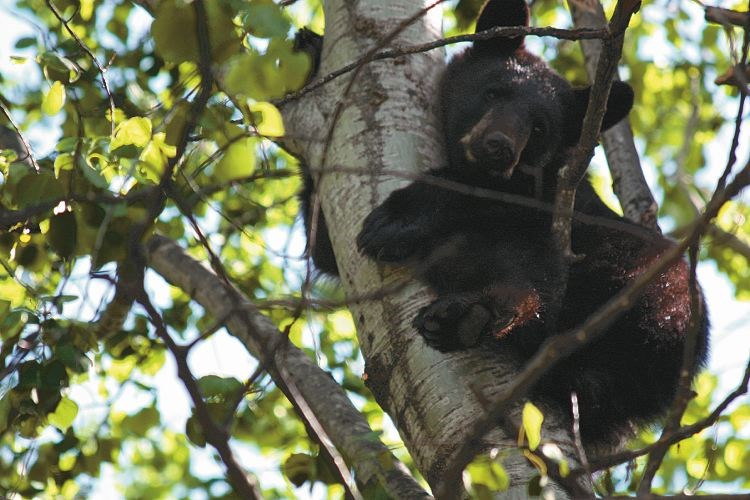Alarm bells are going off in bear dens across the region. Conservation officials are hoping alarm bells are ringing for the public as well.
"The bears have already started to wake up," said Conservation Officer Gary Van Spengen. "In College Heights we have already had incidents of bears raiding garbage cans. It is the responsibility of each homeowner to keep the bear attractants from bringing them around."
That means lock garbage up in sheds or garages, keep pet food inside, clean the barbecue after each grilling, and bird feeders should be out of a bear's reach.
The cooler weather this spring means snow has not melted as much as in past years, and nature has not yet flourished with greens and bugs that bears like to each.
"It is going to play a role in that natural food will be harder to come by, which makes it even more imperative that we take down our bird feeders and lock up our garbage, right away," Van Spengen said.
No bears have had to be destroyed inside Prince George city limits so far this year. Van Spengen almost choked with anger that 88 had to be killed by him and his colleagues last year.
"It was absolutely terrible. Most of those situations could have been prevented," he said.
"Looking for food in a homeowner's yard is not the bear's fault; that is the homeowners fault. If you don't have any food rewards there, they will do no more than pass through if they come around to your yard at all.
"We would prefer to be out enforcing our fish and wildlife laws. Our number one priority is public safety, so that can be minimized by the actions of people being responsible with what they do in their yards."
He said nature is nonetheless providing edible material for bears right now, so bears are in no danger of starving, but they will be easily attracted to easy pickings if people leave that out for them.
If people do have a persistent bear issue call 1-877-952-7277 (RAPP).
LOADED FOR BEAR
The Prince George Bear Aware program received no funding from the provincial government last year for the bear awareness co-ordinator that works from spring to fall educating the public about the preventable factors of bear-human conflict in the city. The volunteer group found funding elsewhere to keep the position alive.
This year, the funding from the province has been restored to Prince George, via the British Columbia Conservation Foundation (BCCF).
"Bear Aware is an educational program that teaches communities how to deal with bear attractants, and in doing so, effectively reduces the number of conflicts that arise between people and bears," said Frank Ritcey, Provincial Bear Aware Co-ordinator for the BCCF. "Remember, we can all help bears this spring by doing simple things like taking down bird feeders, putting garbage out just before pick-up and generally making sure nothing is left around your home or yard that could attract a bear."
The provincial fund will employ 22 bear awareness co-ordinators across the province this year.



